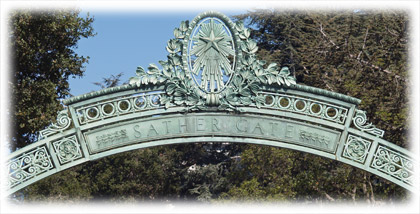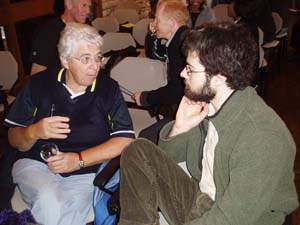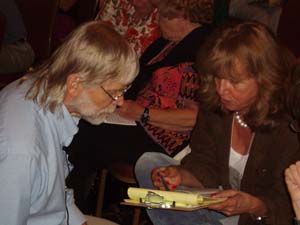 The following articles on our website are directly relevant to higher education instruction in critical thinking and are offered complimentary.
The following articles on our website are directly relevant to higher education instruction in critical thinking and are offered complimentary.
{"id":"2277","title":"","author":"","content":"<p><img style=\"float: right;\" src=\"/image/pimage/Sather_Gate.jpg\" alt=\"\" /><span>The following articles on our website are directly relevant to higher education instruction in critical thinking and are offered complimentary. </span></p>\r\n<ul>\r\n<li><a style=\"padding: 2px; font-weight: bold;\" href=\"https://www.criticalthinking.org/professionalDev/model-for-colleges.cfm\">A Professional Development Model for Colleges and Universities that Fosters Critical Thinking</a></li>\r\n<li><a class=\"link\" style=\"padding: 2px; font-weight: bold;\" href=\"https://www.criticalthinking.org/professionalDev/higherEducation.cfm\">Professional Development in Critical Thinking for Higher Education</a></li>\r\n<li><a class=\"link\" style=\"padding: 2px; font-weight: bold;\" href=\"https://www.criticalthinking.org/resources/HE/an-overview-to-design.cfm\">An Overview of How to Design Instruction Using Critical Thinking Concepts</a></li>\r\n<li><a class=\"link\" style=\"padding: 2px; font-weight: bold;\" href=\"https://www.criticalthinking.org/resources/HE/recomendations-for-self-evaluation.cfm\">Recommendations for Departmental Self-Evaluation</a></li>\r\n<li><a class=\"link\" style=\"padding: 2px; font-weight: bold;\" href=\"https://www.criticalthinking.org/resources/HE/college-wide-grading-standards.cfm\">College-Wide Grading Standards</a></li>\r\n<li><a class=\"link\" style=\"padding: 2px; font-weight: bold;\" href=\"https://www.criticalthinking.org/resources/HE/sample-course-american-history.cfm\">Sample Course: American History: 1600 to 1800</a></li>\r\n<li><a class=\"link\" style=\"padding: 2px; font-weight: bold;\" href=\"https://www.criticalthinking.org/resources/class-syllabus-fall-93.cfm\">CT Class Syllabus</a></li>\r\n<li><a class=\"link\" style=\"padding: 2px; font-weight: bold;\" href=\"https://www.criticalthinking.org/resources/HE/a-sample-assignment-format.cfm\">A Sample Assignment Format</a></li>\r\n<li><a class=\"link\" style=\"padding: 2px; font-weight: bold;\" href=\"https://www.criticalthinking.org/resources/HE/syllabus-psychology-1.cfm\">Syllabus - Psychology I</a></li>\r\n<li><a class=\"link\" style=\"padding: 2px; font-weight: bold;\" href=\"https://www.criticalthinking.org/resources/HE/ct-class-grading-policies.cfm\">Critical Thinking Class: Grading Policies</a></li>\r\n<li><a class=\"link\" style=\"padding: 2px; font-weight: bold;\" href=\"https://www.criticalthinking.org/resources/HE/ct-class-student-understandings.cfm\">Critical Thinking Class: Student Understandings</a></li>\r\n<li><a class=\"link\" style=\"padding: 2px; font-weight: bold;\" href=\"https://www.criticalthinking.org/resources/HE/grade-profiles.cfm\">Grade Profiles</a></li>\r\n<li><a class=\"link\" style=\"padding: 2px; font-weight: bold;\" href=\"https://www.criticalthinking.org/resources/HE/John_Stuart_Mill_Instruction.cfm\">John Stuart Mill: On Instruction, Intellectual Development, and Disciplined Learning</a></li>\r\n<li><a class=\"link\" style=\"padding: 2px; font-weight: bold;\" href=\"https://www.criticalthinking.org/resources/HE/socratic-teaching.cfm\">Socratic Teaching</a></li>\r\n<li><a class=\"link\" style=\"padding: 2px; font-weight: bold;\" href=\"https://www.criticalthinking.org/resources/HE/structures-for-student-self-assessment.cfm\">Structures for Student Self-Assessment</a></li>\r\n</ul>\r\n<p><br style=\"clear: both;\" /></p>","public_access":"1","public_downloads":"1","sku":"","files":[],"images":[]}
Additional Complimentary Resources for Higher Education Faculty
The following articles go beyond instructional redesign and focus on a number of issues in critical thinking relevant to higher education instruction.
{"id":"2278","title":"Additional Complimentary Resources for Higher Education Faculty","author":"","content":"<p><span>The following articles go beyond instructional redesign and focus on a number of issues in critical thinking relevant to higher education instruction.</span></p>\r\n<table>\r\n<tbody>\r\n<tr>\r\n<td><img style=\"float: left; border: 0px initial initial;\" src=\"/image/pimage/P1010042.jpg\" border=\"0\" alt=\"\" hspace=\"10\" vspace=\"5\" align=\"right\" /></td>\r\n<td><img style=\"float: right; margin-left: 10px; margin-right: 10px; margin-top: 5px; margin-bottom: 5px;\" src=\"/image/pimage/PPL1010115.jpg\" alt=\"\" /></td>\r\n</tr>\r\n</tbody>\r\n</table>\r\n<table>\r\n<tbody>\r\n<tr>\r\n<td width=\"180\" align=\"center\"><img src=\"/images/Campanile-tall.jpg\" border=\"0\" alt=\"The Campanile at UC Berkeley\" hspace=\"16\" vspace=\"8\" align=\"left\" /></td>\r\n<td width=\"*\">\r\n<p><span style=\"color: #000080;\"><strong>ISSUES IN CRITICAL THINKING</strong></span><br /><a class=\"link\" href=\"https://www.criticalthinking.org/articles/ethics-wo-indoctrination.cfm\">Ethics Without Indoctrination</a><br /> <a class=\"link\" href=\"https://www.criticalthinking.org/articles/accelerating-change.cfm\">Accelerating Change</a><br /> <a class=\"link\" href=\"https://www.criticalthinking.org/articles/applying-a-criticalthinking-model-for-engineering-.cfm\">Applied Disciplines: A Critical Thinking Model for Engineering</a><br /> <a class=\"link\" href=\"https://www.criticalthinking.org/articles/ct-emotional-intelligence.cfm\">Critical Thinking and Emotional Intelligence</a><br /> <a class=\"link\" href=\"https://www.criticalthinking.org/articles/ct-moral-integrity.cfm\">Critical Thinking, Moral Integrity and Citizenship</a><br /> <a class=\"link\" href=\"https://www.criticalthinking.org/articles/diversity.cfm\">Diversity: Making Sense of It Through Critical Thinking</a><br /> <a class=\"link\" href=\"https://www.criticalthinking.org/articles/why-ct-is-essential.cfm\">Global Change: Why C.T. is Essential To the Community College Mission</a><br /> <a class=\"link\" href=\"https://www.criticalthinking.org/articles/natural-egocentric.cfm\">Natural Egocentric Dispositions</a><span style=\"color: #000080;\"><strong><br /> </strong></span></p>\r\n<p><span style=\"color: #000080;\"><strong>THE QUESTIONING MIND</strong></span><br /> <a class=\"link\" href=\"https://www.criticalthinking.org/articles/questioning-mind.cfm\">Newton, Darwin, & Einstein</a><br /> <a class=\"link\" href=\"https://www.criticalthinking.org/articles/the-role-socratic-questioning-ttl.cfm\">The Role of Socratic Questioning in Thinking, Teaching, & Learning</a><br /> <a class=\"link\" href=\"https://www.criticalthinking.org/articles/critical-mind.cfm\">The Critical Mind is A Questioning Mind</a><br /> <a class=\"link\" href=\"https://www.criticalthinking.org/articles/crucial-distinctions.cfm\">Three Categories of Questions: Crucial Distinctions</a><br /> <a class=\"link\" href=\"https://www.criticalthinking.org/articles/the-role-of-questions.cfm\">The Role of Questions in Teaching, Thinking and Learning</a><br /> <a class=\"link\" href=\"https://www.criticalthinking.org/articles/history_freedom_of_thought.cfm\">A History of Freedom of Thought</a><br /> <br /><span style=\"color: #000080;\"><strong>RESEARCH</strong></span><br /> <a class=\"link\" href=\"https://www.criticalthinking.org/research/Abstract-JREED.cfm\">Effect of a Model for Critical Thinking on Student Achievement...</a><br /> <a class=\"link\" href=\"https://www.criticalthinking.org/research/Abstract-RPAUL-38public.cfm\">Study of 38 Public Universities and 28 Private Universities To Determine Faculty Emphasis on Critical Thinking In Instruction</a><br /> <a class=\"link\" href=\"https://www.criticalthinking.org/research/raising_SAT_and_ACT_Scores.cfm\">Substantive Critical Thinking as Developed by the Foundation for Critical Thinking Proves Effective in Raising SAT and ACT Test Scores...</a><br /> <a class=\"link\" href=\"https://www.criticalthinking.org/research/Debra_Connerly_study.cfm\">Teaching Critical Thinking Skills to Fourth Grade Students Identified as Gifted and Talented</a><br /> <a class=\"link\" href=\"https://www.criticalthinking.org/research/Abstract-JSCANLAN.cfm\">The Effect of Richard Paul's Universal Elements and Standards of Reasoning on Twelfth Grade Composition</a><br /> <br /> <span style=\"color: #000080;\"><span class=\"mainlink\"><strong>28th INTERNATIONAL CONFERENCE ON CRITICAL THINKING</strong></span></span> <br /> <a class=\"link\" href=\"https://www.criticalthinking.org/Conference/28thconference.cfm\">28th International Conference on Critical Thinking</a><br /> <a class=\"link\" href=\"https://www.criticalthinking.org/conference/2008-theme.cfm\">Conference Theme: The Art of Teaching for Intellectual Engagement</a><br /> <a class=\"link\" href=\"https://www.criticalthinking.org/conference/2008session.cfm\">Conference Sessions (28th Intl. Conference)</a><br /> <a class=\"link\" href=\"https://www.criticalthinking.org/conference/2008-preconference.cfm\">Preconference Sessions (28th Intl. Conference)</a><a class=\"link\" href=\"https://www.criticalthinking.org/conference/fees.cfm\"></a><br /> <a class=\"link\" href=\"https://www.criticalthinking.org/conference/academic_credit.cfm\">Academic Credit</a></p>\r\n</td>\r\n</tr>\r\n</tbody>\r\n</table>\r\n<p><br style=\"clear: both;\" /></p>","public_access":"1","public_downloads":"1","sku":"","files":[],"images":[]}
 The following articles on our website are directly relevant to higher education instruction in critical thinking and are offered complimentary.
The following articles on our website are directly relevant to higher education instruction in critical thinking and are offered complimentary. 
